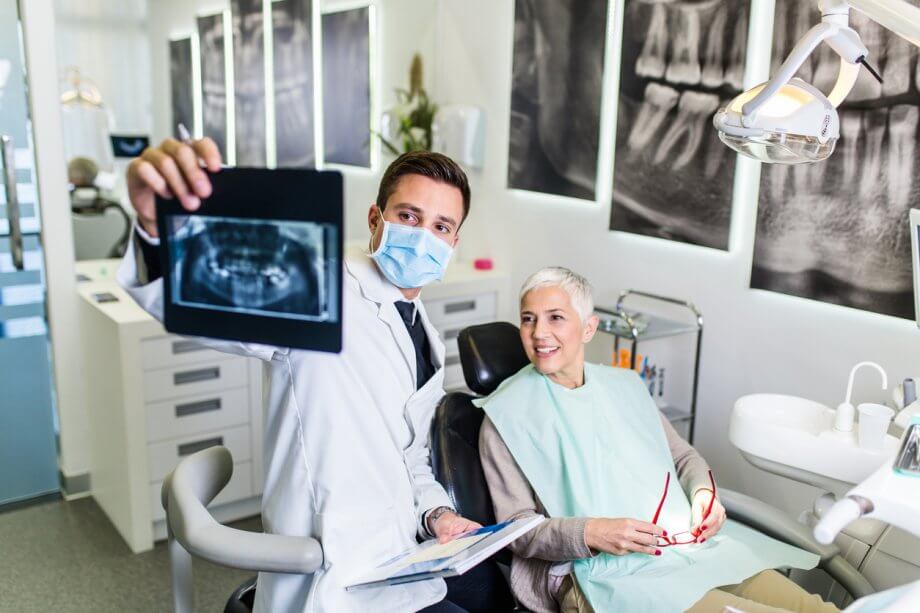Even when we take the best possible care of our teeth, problems start to develop as we age. This is why it's especially important to make those biannual dental exams and cleanings well into your senior years––dentists can spot potential issues before they progress to the point of needing costly restorative care. Below are some of the most common dental problems we see in older adults.
Oral Cancer
Regardless of your age, your dentist checks for signs of oral cancer at every routine dental visit. This is crucial because early signs of mouth, throat, and tongue cancers may be painless or mistaken for other benign conditions, like canker sores. The average age of patients diagnosed with oral cancer is 62; oral cancer claims over 10,000 lives each year, but early detection increases your odds of survival.
To minimize your risk of oral cancer, quit using tobacco in all forms and drink alcohol in moderation, if at all. Wear a lip balm with sunblock year-round when you’re going to be outside and reapply often.
Gum Disease
When plaque builds up in the mouth, it can cause periodontal disease. While the start of gum disease is often painless, it progresses into bleeding and swollen gums and the formation of pockets along the gumline where more plaque and food particles collect. This can lead to the deterioration of gums, bone, and ligaments and, eventually, tooth loss.
Luckily, gum disease is easily treated when caught early. Scaling and root planing treatments clean plaque from teeth and help gums reattach to the roots, eliminating pockets.
Tooth Decay
Gum disease can also lead to root decay. When gum tissue recedes, it exposes the roots of teeth. These roots do not have the same enamel found on the crowns of your teeth, making them more susceptible to decay. Root decay can be painful and lead to tooth loss.
According to the CDC, one in five adults over the age of 65 has untreated tooth decay. It's important to treat cavities early to prevent decay from spreading and causing pain.
Dry Mouth
While dry mouth can be caused by radiation treatments for cancer in the head or neck and certain diseases, the most common cause of dry mouth for senior patients is medication. There are a number of common prescription medications, from SSRIs for depression and anxiety to diuretics, that cause a reduction in saliva flow. Saliva works to wash away decay-causing bacteria and food debris throughout the day; without sufficient saliva, bacteria thrives in the mouth.
To remedy this at home, use a mouthwash designed for dry mouth, stay hydrated, and use sugar-free gum or lozenges to stimulate saliva production.
Make an Appointment Today
If you have questions about caring for your teeth as you age, make an appointment today to see our team at Smiles on the Upper Westside. Contact us at 212-222-5225 to schedule a visit.

